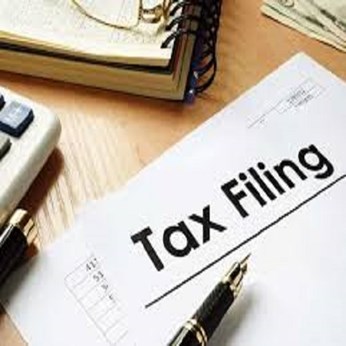What to Do If You Missed the Tax Filing Deadline

Missing the tax filing deadline can be stressful, but it's important to take action quickly to minimize any penalties and interest. Here are some steps you can take if you find yourself in this situation:
1. File as Soon as Possible
The sooner you file your tax return, the less you'll owe in penalties. The IRS imposes a failure-to-file penalty, which is typically 5% of your unpaid taxes for each month your return is late, up to a maximum of 25%. Additionally, there's a failure-to-pay penalty, which is 0.5% of your unpaid taxes for each month you don't pay. Both penalties accrue monthly, so filing and paying as soon as possible can save you money.
2. Pay What You Can
Even if you can't pay your full tax bill, pay as much as you can to reduce the amount of interest and penalties. The IRS offers payment plans that can help you manage your tax debt over time.
3. Adjust Your Withholding
If you find that you owe more taxes than expected, it might be due to insufficient withholding from your paycheck. Consider updating your W-4 form to adjust your withholding and avoid a similar situation next year.
4. Claim Any Refunds
Even if you don't owe taxes, you might be entitled to a refund. Overpaid taxes through paycheck withholding or refundable credits like the Child Tax Credit or Earned Income Tax Credit can result in money back. The only way to claim these refunds is by filing a tax return.
5. Seek Professional Help
If you're unsure about how to proceed, consider seeking help from a tax professional. They can provide guidance on filing back taxes, reducing penalties, and setting up payment plans.
Ready to take control of your finances? Whether you're looking to optimize your taxes or need expert financial advice, Sulekha Finance and Taxation is here to help. Contact us today and let our experienced professionals guide you towards a secure financial future. Don't wait—start your journey to financial freedom now!
Searching for Financial & Taxation Services? Let’s make your search simple with professionals!
Take your Financial & Taxation Services to the next level with Sulekha. Boost your online visibility, connect with more clients, and grow effortlessly!
Blogs Related to Financial & Taxation Services

How Can You Use Payroll Data to Improve HR Strategy?
How Can You Use Payroll Data to Improve HR Strategy? Payroll isn’t just about paying employees—it’s a goldmine of business intelligence. When analysed strategically, payroll data reveals patterns that can transform your HR strategy

Is Your Bookkeeping a Mess? Are You Missing Out on Growth Opportunities?
Is Your Bookkeeping a Mess? Are You Missing Out on Growth Opportunities?

Need a Clearer Financial Picture? Why Compilation Services Can Help
Need a Clearer Financial Picture? Why Compilation Services Can Help. Understanding your company’s true financial health begins with accurate reporting. But not every business needs a full audit or review. For many small and mid-sized organisations,

Do You Need Clearer Financial Insights? What Can Modern Auditing Services Offer?
Do You Need Clearer Financial Insights? What Can Modern Auditing Services Offer? In today’s fast-paced business world, financial clarity is more than an advantage—it’s a necessity. Whether you run a small enterprise or a growing corporation, accurat

How Do You Find the Right Life Insurance Policy?
How Do You Find the Right Life Insurance Policy? Life insurance is more than a safety net—it’s a cornerstone of sound financial planning. Whether you’re protecting your family’s future, securing your business, or planning your estate, finding the ri

Why Is Investment Management Critical for High-Net-Worth Individuals?
Why Is Investment Management Critical for High-Net-Worth Individuals? Wealth accumulation is an achievement—but managing it effectively is an even greater challenge. For high-net-worth individuals (HNWIs), wealth management requires precision, fores




